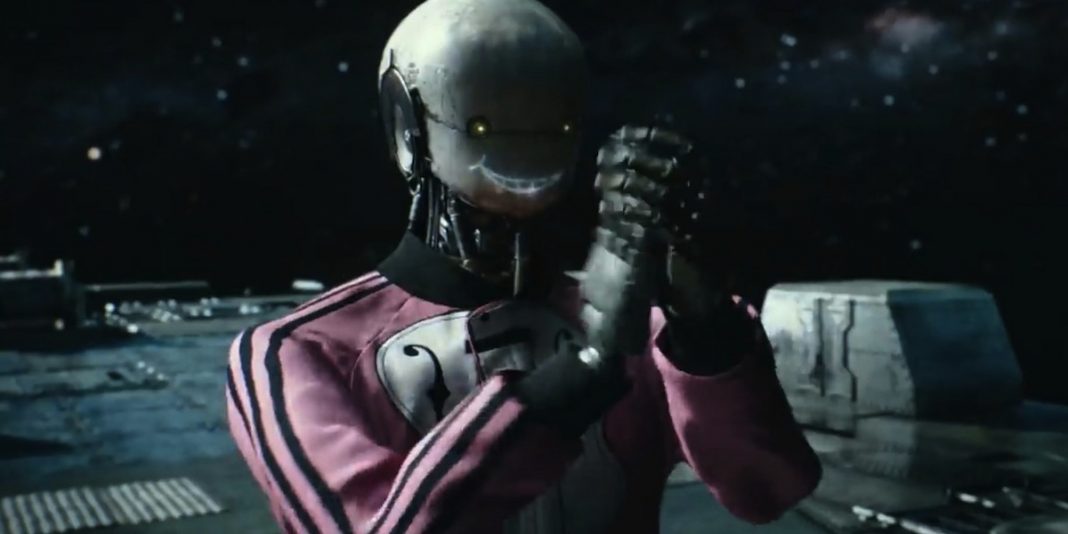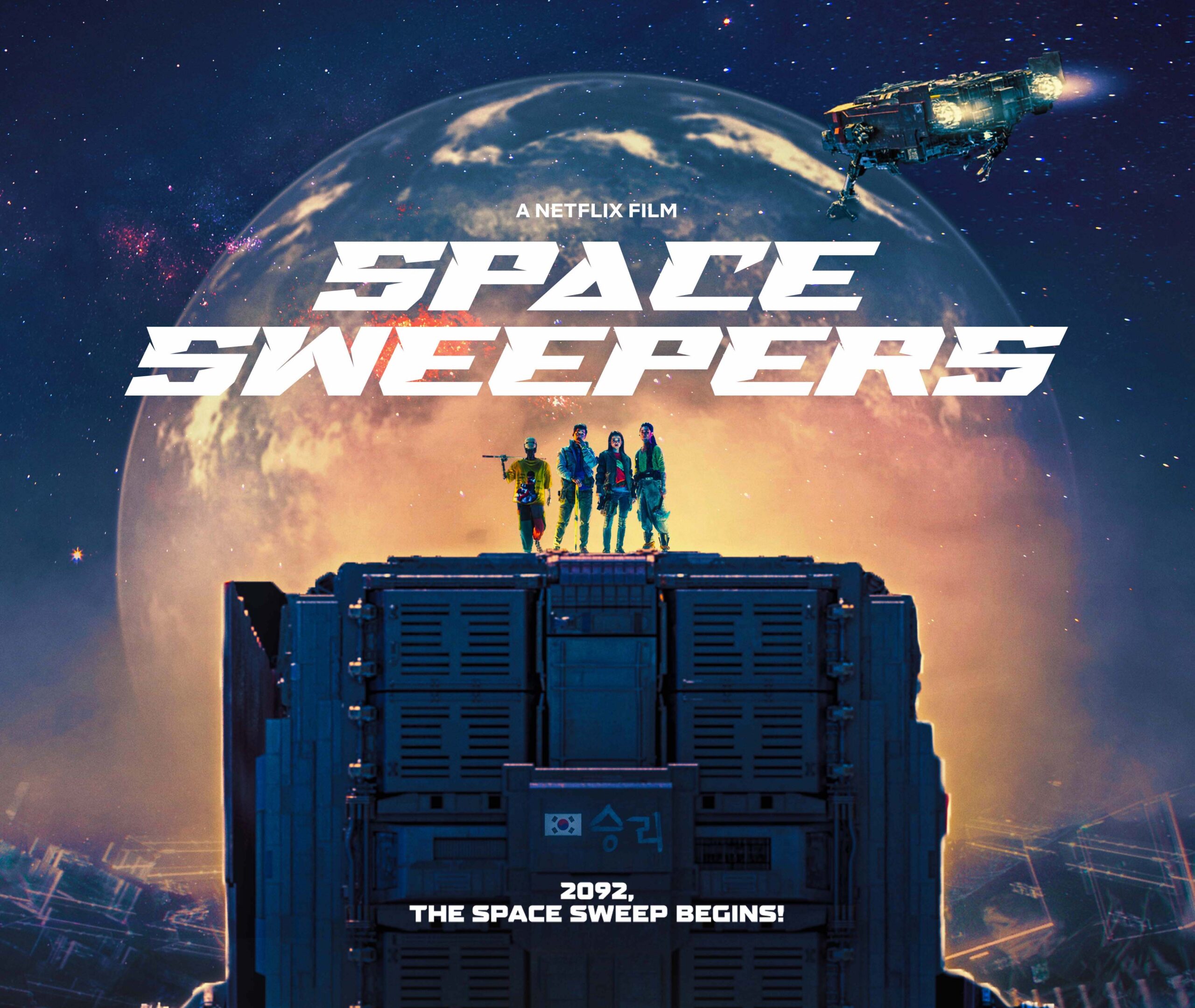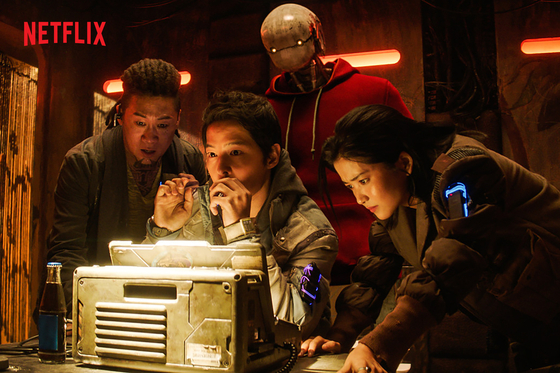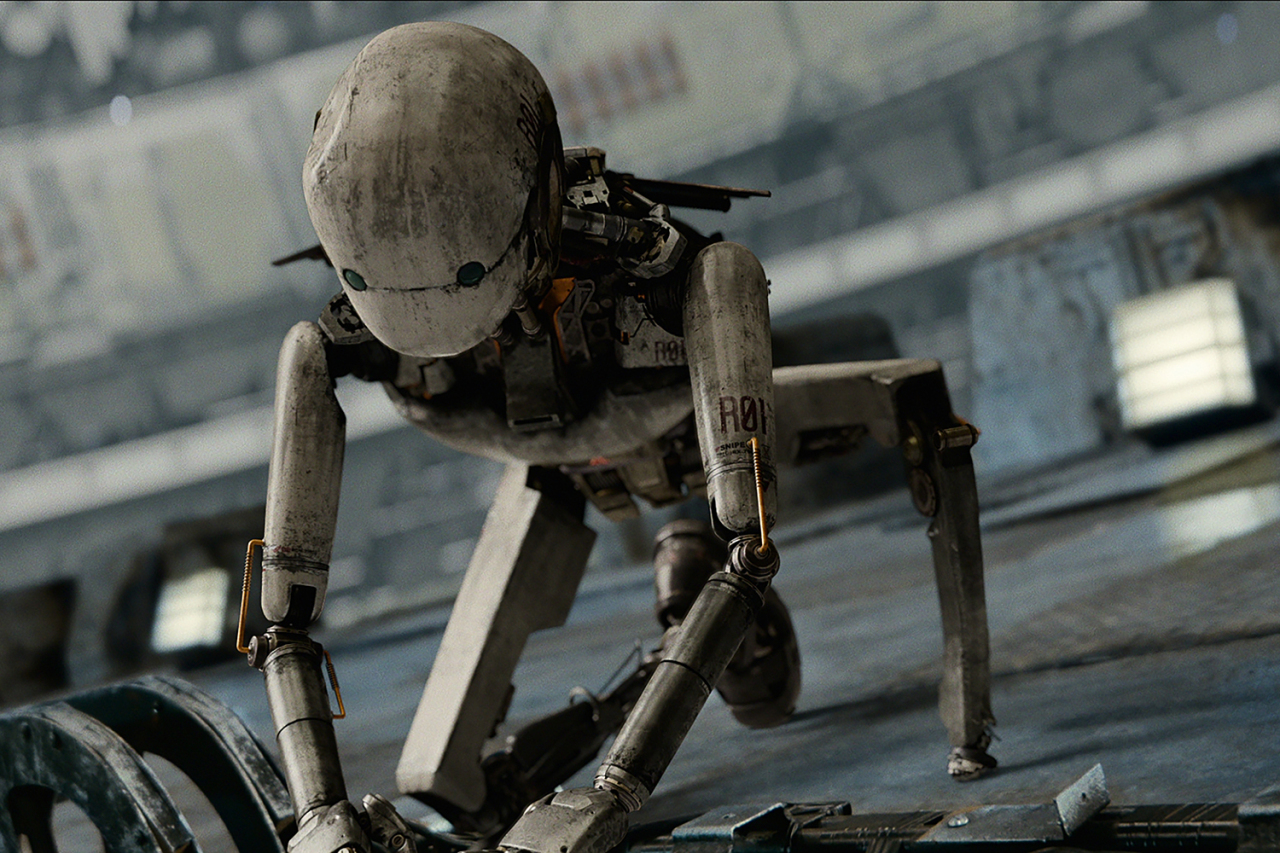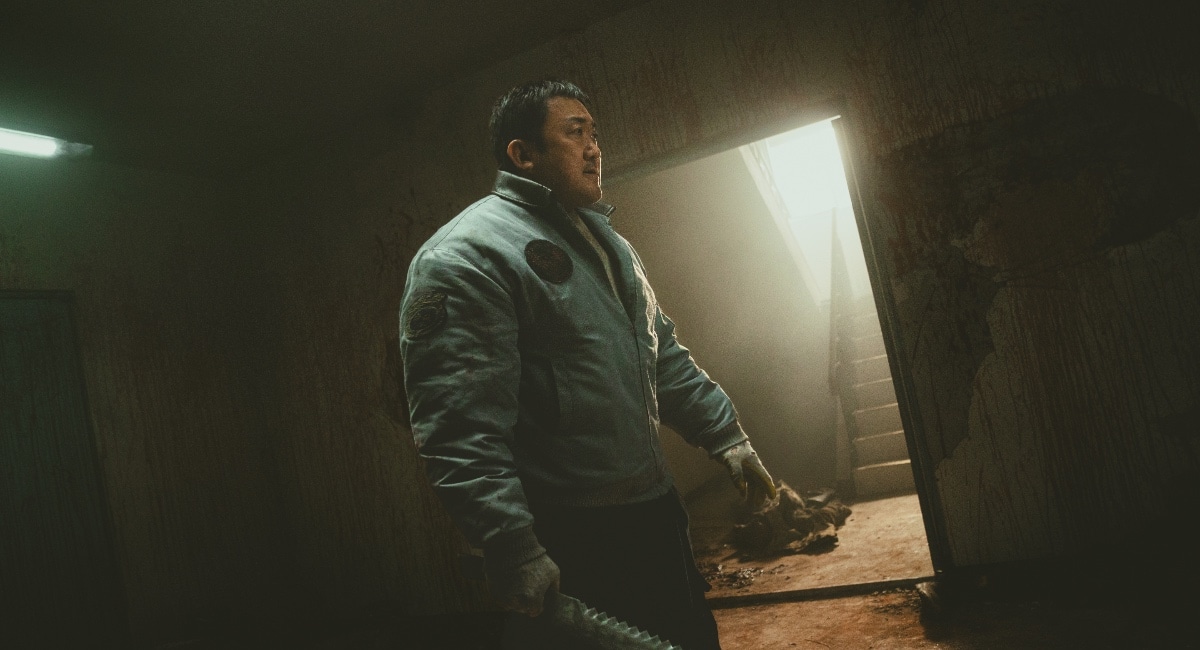This article contains spoilers for the entirety of Space Sweepers, released for streaming on Netflix on February 5th, 2021.
While Space Sweepers may be set in 2092, in many respects, the world it reveals resembles the one we all find ourselves trapped on: consumed by capitalism – but perhaps not beyond hope.
Capitalism’s Space Junk
In Space Sweepers, the crew of the Victory each has their own respective needs – and their own shared need: to offset the debt incurred ensuring the ship, their livelihood, remains space worthy.
For Bubs the robot (Hae-Jin Yoo), the acute need for money stems from a need to fund her skin graft and bone structure alternation, allowing her to present as a human woman. However, just as medical transition for humans in the present day can cost a prohibitive amount of money for transgender people under capitalism, Bubs is forced to scrounge up money for her surgeries in 2092.
The fact that each member of the Victory’s crew has a desperate need for money puts the otherwise allied group at odds with each other: witness the somewhat less-than-friendly card game (which culminates in a glimpse of the carefully collected money Bubs has stashed in a safe deposit box).
Or consider the scene where Tae-ho (Song Joong-Ki) floats the idea of turning in Kot-nim (Ye-Rin Park) for money. On top of the crew forced to contemplate a course of action that would have played right into Sullivan’s hands, they are reduced to bickering with one another over who will receive what cut of the reward, rather than working together in order to solve their shared problems.
Another example of the places the crew is driven by capitalism comes from a question, Kot-nim asks Bubs: why Tae-ho is so scary.
“He’s not scary, dear,” Bubs replies. “He’s just poor, desperate, and mean.” The statement underscores the fact that this isn’t the natural state of being for the crew members of the Victory: this is what they’ve been forced into.
But while capitalism may make the members of the Victory crew more likely to go for each others’ throats, it can’t completely eradicate their intrinsic morality: at one point, we even see Bubs begrudgingly allow the money she’s earmarked for her procedures to be used to pay for necessary repairs to the ship.
Nevertheless, the crew does end up at odds with one another more than once over the course of Space Sweepers. Why is it that are they being turned against each other?
Life Under Capitalism
At one point, Bubs even sighs, “Do you think poverty makes us bad or that we’re poor because we’re bad?”
Bubs is echoing the implied narrative of capitalism: that those with adequate skills who put themselves to work will be proportionately rewarded for their effort with financial resources. The narrative suggests that the most skilled and deserving individuals will be consummately compensated by capitalism.
By extension, the individual with an increasing bank account balance will also see themselves gaining the increased social and societal influence that accompanies the control of more and more money. According to the narrative of capitalism, this is simply the system “rewarding” those who deserve it – working as intended.
The other side of the equation? That those without influence don’t deserve it, probably because they failed to earn it.
But we already know this isn’t the case: in the scene that introduces the crew of the Victory, we see that in their field of work – collecting space debris – they are exceptional, besting plenty of their rivals in order to make a score. However, in spite of their adroit ensnarement of the space junk, a collision with one of the rich folk’s antenna means that the operation ends up being a monetary loss rather than a gain, a feeling that will surely resonate with many viewers, trapped as they are in capitalism themselves.
The Big Lie
So if the system doesn’t work, then who’s perpetuating the big lie of capitalism? In Space Sweepers, James Sullivan (Richard Armitage), who is the apotheosis of rich, white, and male, embodies the evil that perpetuates capitalism.
Over the course of the movie, we see him playing at being a leader, mostly from his orbiting artificial paradise. Within the UTS bubble, the corporation can control every facet of life, being the sole source for all resources (including air), and with Sullivan able to address the entire society by appearing as an enormous hologram and dispatching whatever edicts he may desire, the company is control of the narrative, as well.
Crucial for this piece is the fact that Sullivan obviously has access to advanced medical technology. We know this thanks to the revelation that he’s actually 152 years old, but appears significantly younger. While those trapped within the system have to struggle in order to get basic medical care, at the top of the pyramid, Sullivan has access to treatments that would never be available to those who don’t occupy such a rarified position.
Sullivan would most likely defend this disparity by arguing that, because of his position, he is more deserving of the treatment; or that because he brings such singular benefits to the table, giving him special privileges will ultimately be best for everyone.
However, we already know that the crew of the Victory has exceptional skills. In fact, as their backstories become more clear, it soon becomes evident that it isn’t a matter of the crew members not being skilled enough – it’s that they don’t wish to use those skills in the way demanded by Sullivan and the UTS at large (which is mostly just in the service of enforcing the continued supremacy of UTS).
Bubs was literally built to be a weapon: she was designed to be a military robot – a tool for maintaining UTS supremacy. But she rejects these expectations: she doesn’t want to be a murderer, she wants to wear cute clothes and read books.
A Necessary Transition
At the conclusion of the movie, we get a chance to see Bubs after she’s had her skin graft, but before she’s had a chance to select a new voice. Bubs asks Kot-nim which one she prefers, and Kot-nim wonders if Bubs might not already have a suitable voice.
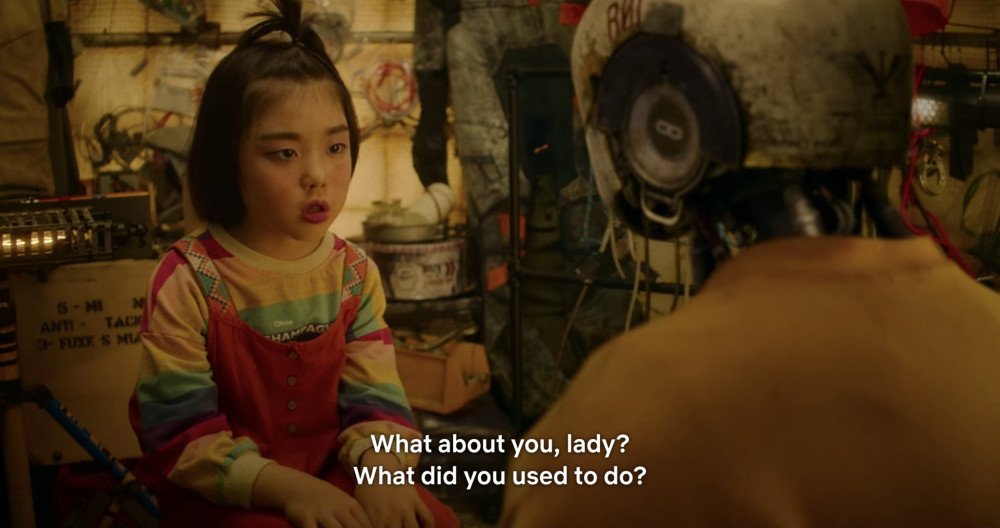
In many cases, an inquiry like this would be pretty rude – Bubs has obviously had plenty of time to contemplate what she wants to do with her body – but Kot-nim is an exception.
Thanks to the fact that Kot-nim is the movie’s innocent, we know that she has no ill intent behind the inquiry. Furthermore, throughout Space Sweepers, we’ve seen Bubs and Kot-nim bonding, with Bubs doing Kot-nim’s make-up, so we know that the pair is close, and such a conversation would not be an invasion of privacy.
But while Kot-nim’s question is grounded in innocence, it gives Bubs an opportunity to inform her (and by extension, the audience) that even though she was able to play her part in defeating Sullivan pre-transition, she will not be foregoing the treatment to which she should have had access all along now that they have defeated Sullivan.
This makes it clear that the journey Bubs undertakes is not one where she learns that she “had what she needed all along,” it’s one where she assists defeat the monster that was standing between her and her ultimate goal all along: capitalism.
A Better Tomorrow
Crucially, it isn’t currency that allows Bubs to finally obtain the treatment she deserved. In fact, when the cargo doors of the Victory open during the climax, revealing that Sullivan has been chasing the wrong ship, much of what pours out of the ship are the paper bills that the crew was given in exchange for Kot-nim. The rejection of this “reward” is part of the crew’s defeat of Sullivan, the movie’s ultimate symbol for capitalism.
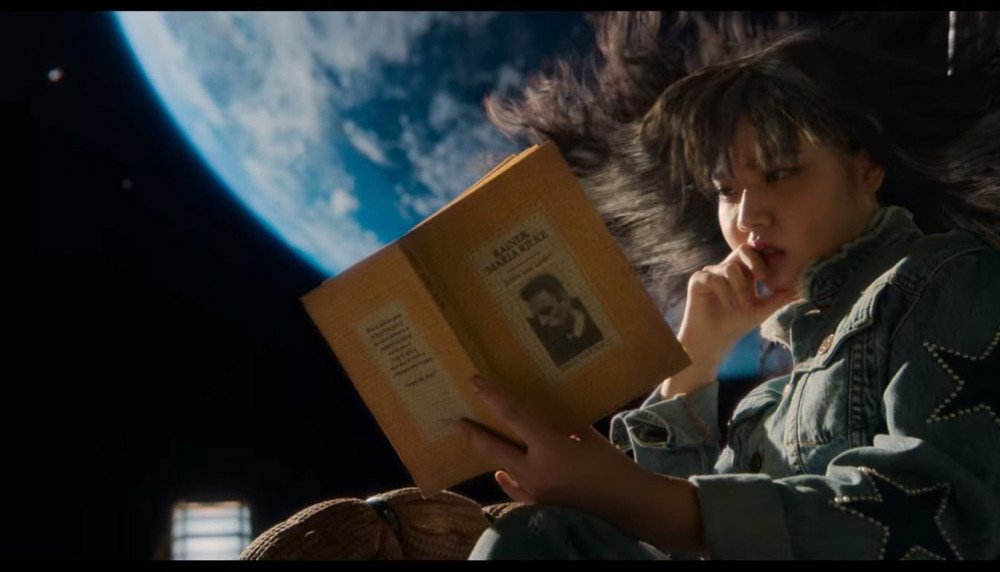
While it shouldn’t be necessary to have to defeat the ultimate evil in order to receive medical care for gender transition – Bubs shouldn’t have to play an integral role in an impossible mission to get the bare minimum of medical treatment – the crew of the Victory never asked to find themselves trapped inside a capitalist hell. But it wasn’t until they stopped turning against each other and worked together to defeat Sullivan – not just among the Victory crew, but among the international space sweepers – that they were each able to finally get what they deserved all along and live the kind of life they each needed.
Space Sweepers is available for streaming on Netflix now.


